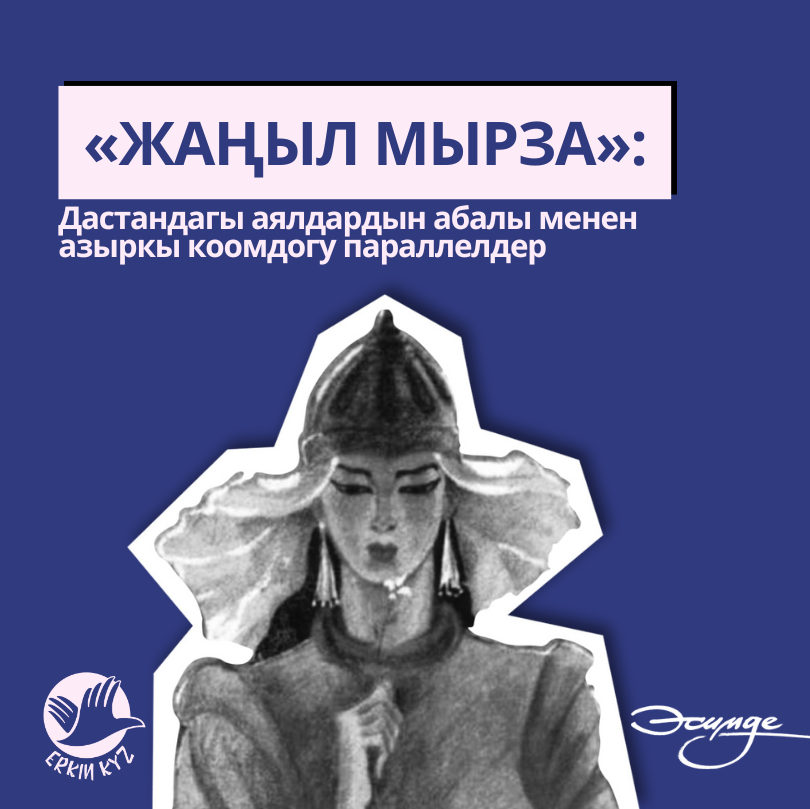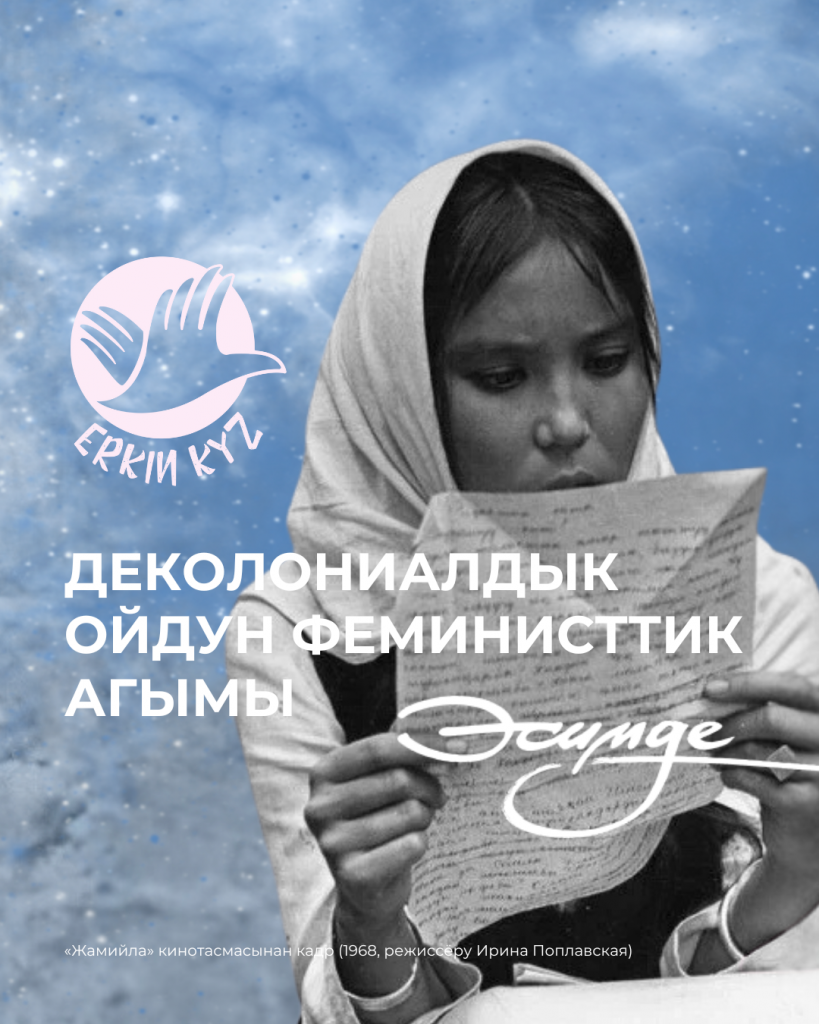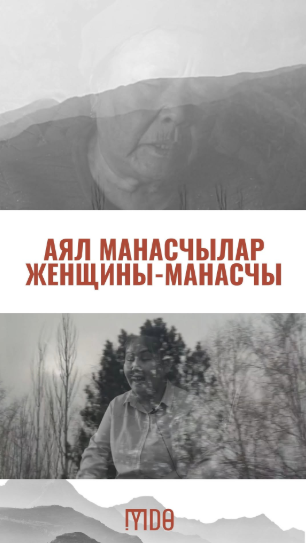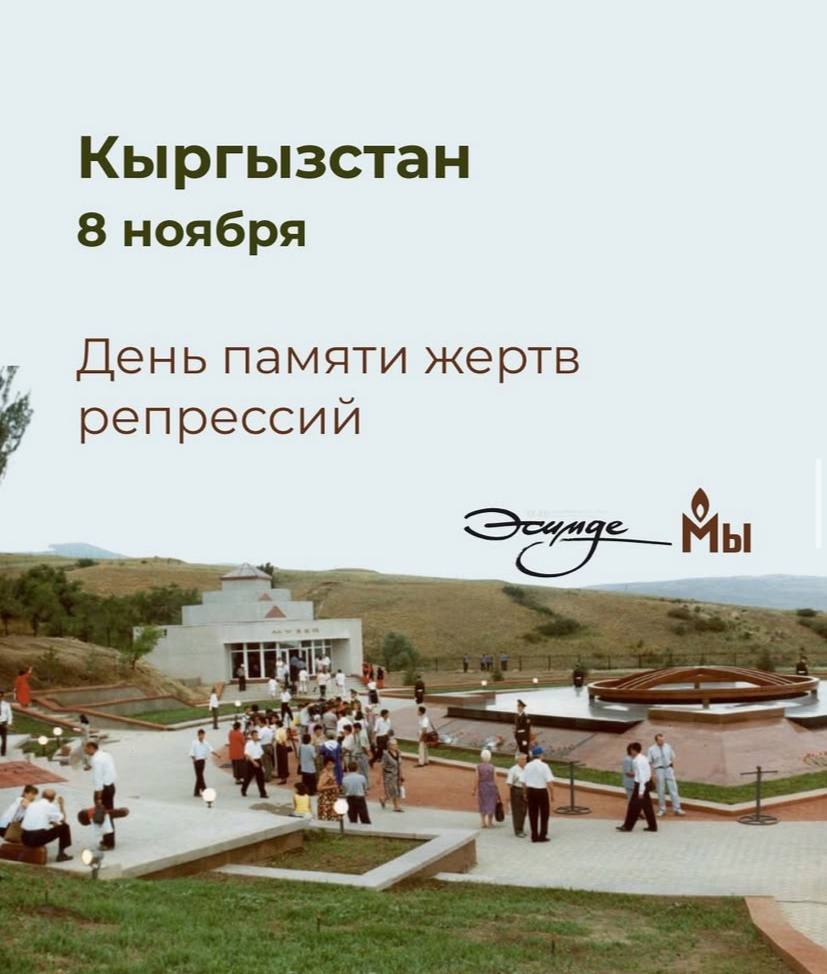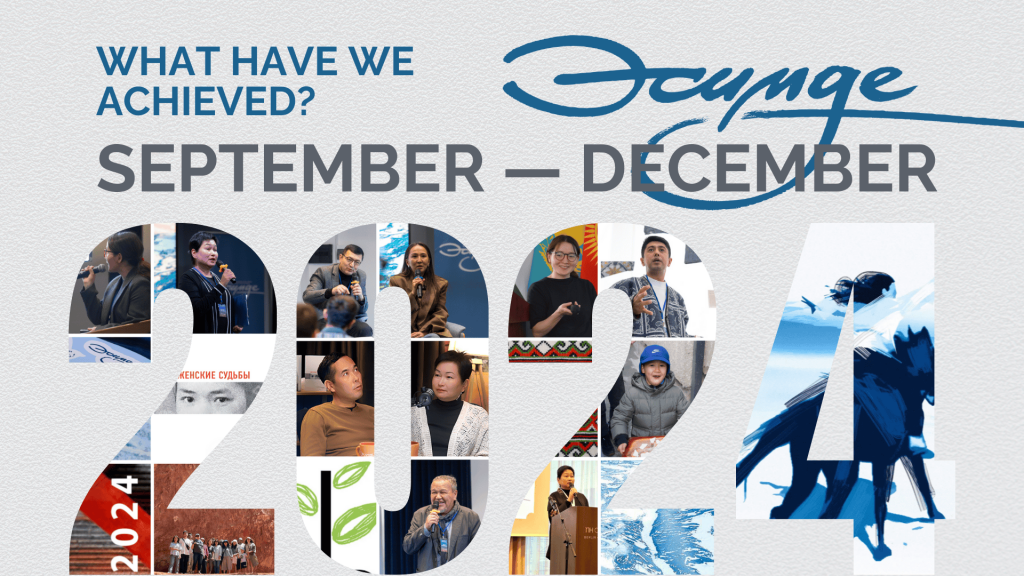
Thanks to ChatGPT for translating this review into English.
The Esimde Research Platform was highly active during the second half of 2024, engaging in a variety of impactful initiatives. We hosted film screenings, organized round tables, delivered presentations, facilitated open lectures, curated exhibitions, and held discussions. Additionally, we recorded podcasts, produced TV shows, forged new friendships and partnerships, and successfully organized our IV International Conference. This review offers a comprehensive summary of the platform’s activities from September 2024 to January 2025, with further details provided below.
The first session of the «Breaking the Silence» School
In 2023, the Esimde, in collaboration with the Academy of Civil Education, launched the interdisciplinary theoretical and practical school “Breaking the Silence”. The school delves into the themes of memory, decolonization, and identity, offering a platform for in-depth exploration and discussion. The program is structured around three immersive three-day sessions held in diverse regions of Kyrgyzstan: Issyk-Kul, Bishkek, and Batken.
As part of the school program, participants undertake their own research and projects on a wide array of topics, utilizing diverse tools such as organizing book clubs, conducting guided tours, recording podcasts, or crafting longreads. One of the most recent and notable works is by human rights lawyer Elvira Tulek Kyzy, titled “Between Borders: Zine on Decolonial Practices.”
A zine is a grassroots, self-published work that follows no specific format or rules, allowing its creator to express themselves freely and creatively.
An open call for submissions in Kyrgyz and Russian was announced on the Esimde pages, inviting texts dedicated to decolonial practices. The only requirement for submissions was brevity, ensuring there was space for everyone. A total of seven texts in different languages and from various locations were submitted, and all of them were included in the zine.
In the second cohort of the “Breaking the Silence” school, more than twenty participants were invited. As tradition dictates, the first three-day session took place on the picturesque northern shore of Issyk-Kul. During the school, we explored our identities in various ways: through conversations, drawing, play, discusting, creating installations, and watching films.











On Day I, we reflected on our culture with Elery Bitikci,
on Day II, we rediscovered our history with Gulzat Alagoz,
and on Day III, we re-explored Kyrgyz literature with Mukaram Toktogulova and Gulzada Stanalieva.




The research “Problems and opportunities for the development of the Kyrgyz language ecosystem in the media.” and its presentation.
With the gaining of independence, the language situation in Kyrgyzstan has been rapidly changing. The significance of the Kyrgyz language as a pillar of the nation and state has been re-evaluated and grown. Considering that language in modern media is a reflection of a more complex environment, the present research is based on the methodology of the “linguistic ecosystem”.
This is the second research project by the Esimde focusing on the language issue. The analytical collection “The Language of Hostility and Other Divisive Practices in Kyrgyzstan” was published in 2020, marking the platform’s initial contribution to this important topic.
On September 13, a presentation of this research took place, with the participation of activists dedicated to the development of the Kyrgyz language, representatives of educational organizations, media professionals, and journalists.
Women’s Fates
For Esimde, the role of women in preserving memory is extremely relevant. It is largely thanks to women that family histories are preserved, and in Germany, the theme of repentance began precisely because women started talking about the violence and trauma they experienced during the Nazi regime. The fourth book in the “Fates” series is dedicated to women’s fates.
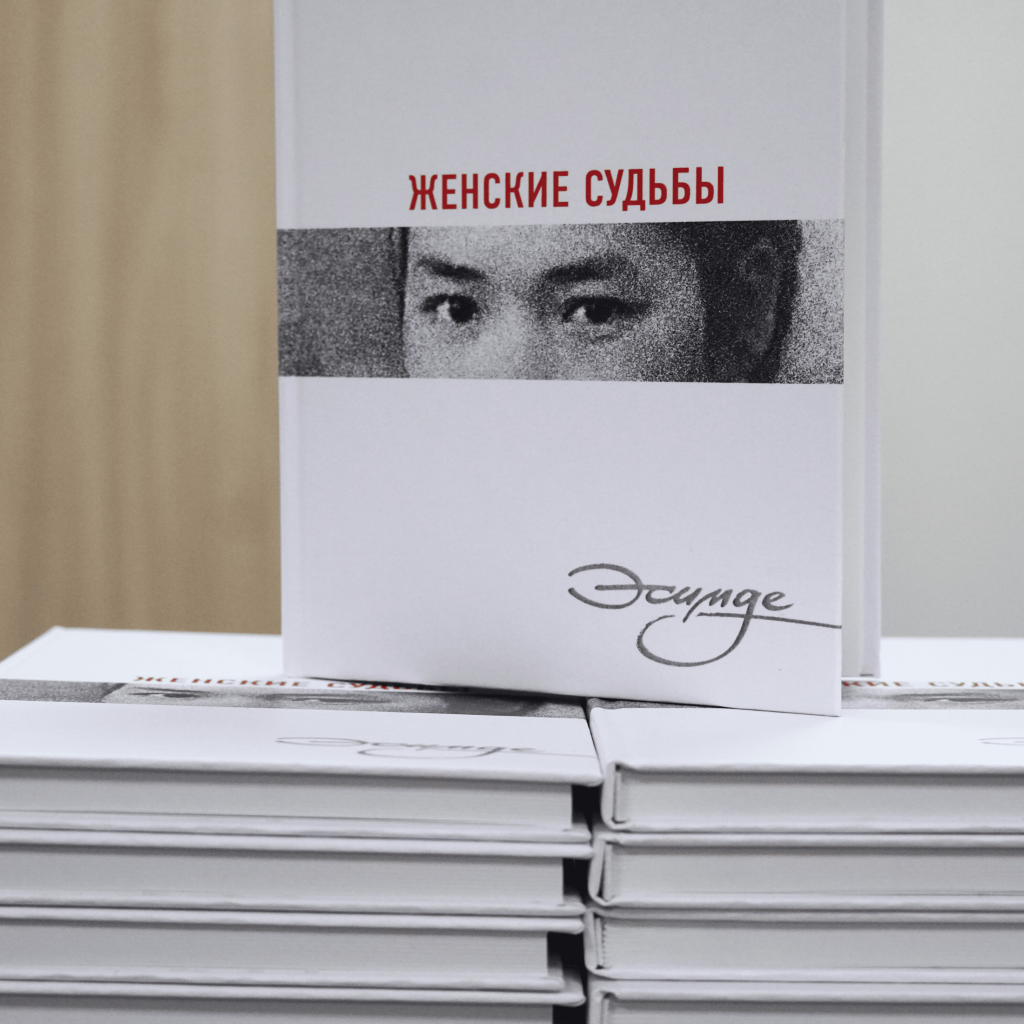
The book in Kyrgyz is set to be released at the end of January 2025.
The study: “Democratic Movements in Kyrgyzstan (1985-1991)”
This study is a key and important answer to the question of why Esimde exists and operates in independent Kyrgyzstan. As part of this research, two round tables were organized with participants from various movements. The year-long study resulted in the creation of a database containing 100 interviews, as well as an analytical report, which is set to be published in the first half of February 2025.
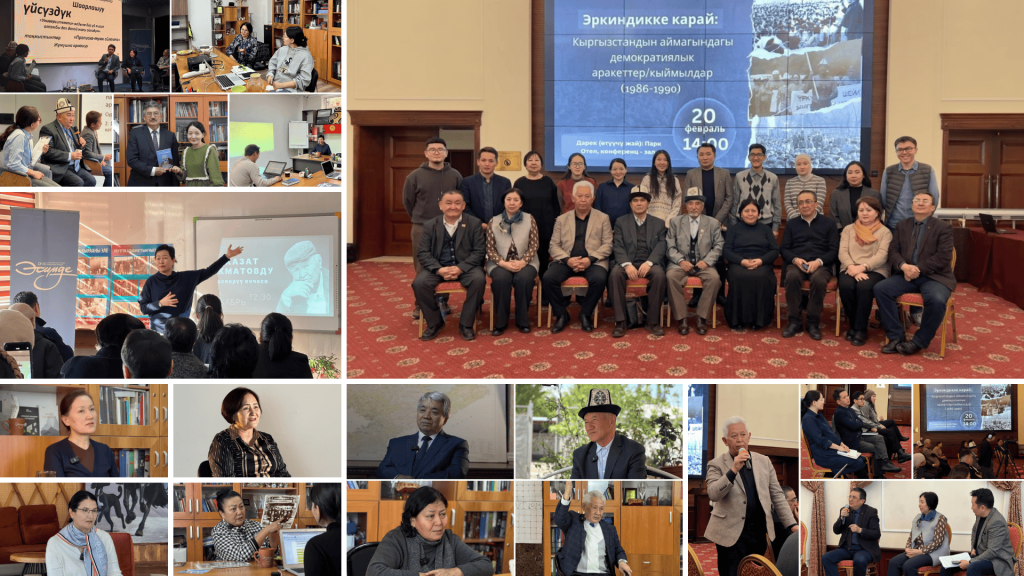
4th International Esimde Conference “Post-Communist Central Asia: A Space for Reflection.”
The 4th International Esimde Conference took place from the 17th to the 19th. This year, the conference title sparked much debate both within our team and among our partners and like-minded individuals: “Post-Communist Central Asia: A Space for Reflection.” Post-communist, post-Soviet, “new”? How can we define our space, our region, without looking back at the past, yet remembering it and learning from our history?










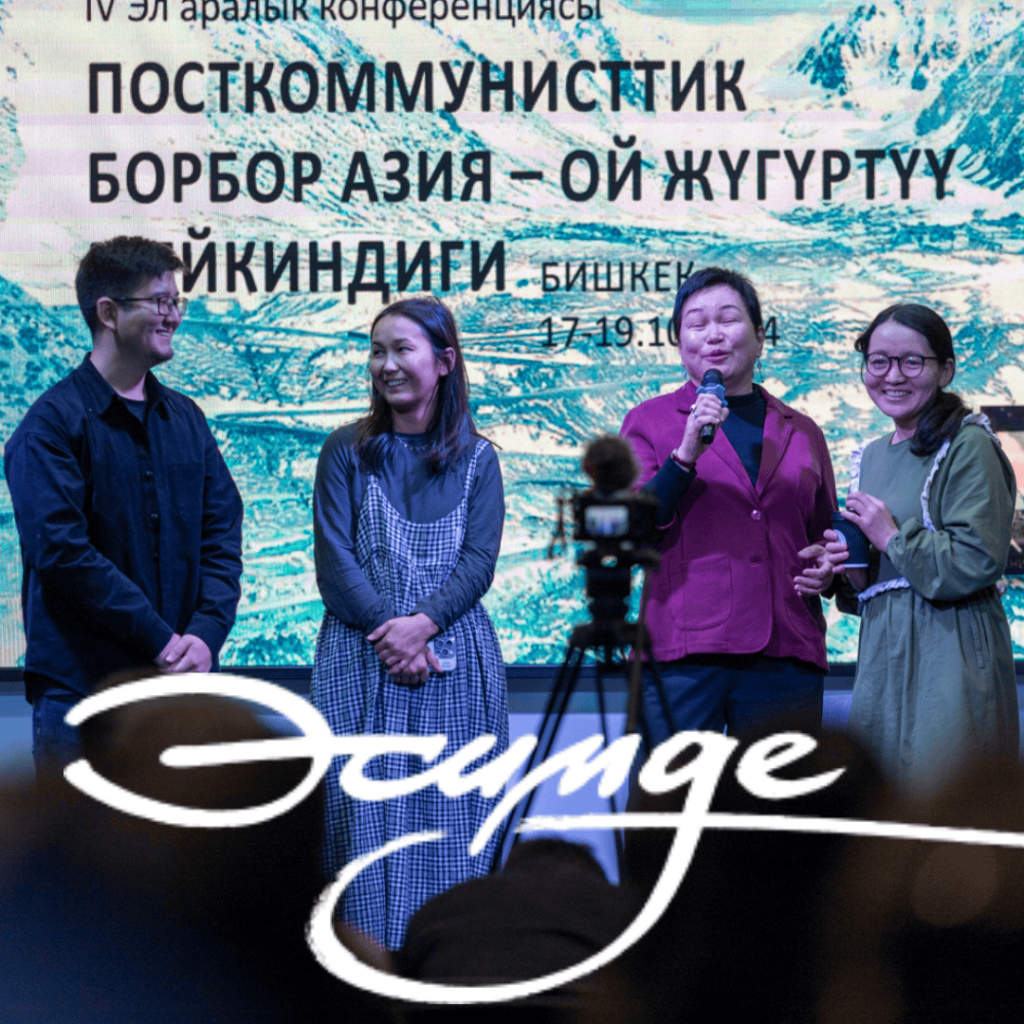
More details about the results of the conference can be found at the link below, and full video recordings of the panels are available on our YouTube channel.
“Caravan on the Roads of Memory” Exhibition
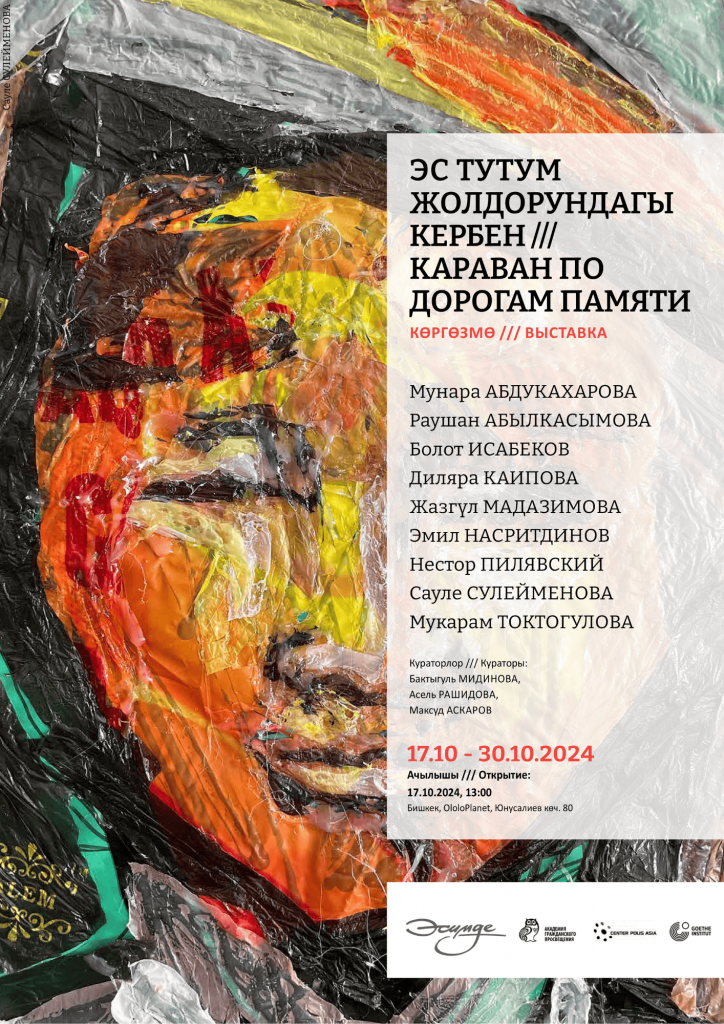
This exhibition is like a caravan traveling through its own land. Along its journey, it explores its surroundings, interacts with them, and discovers treasures that fill the gaps in our memory. Each stop of the caravan is a meeting with stories, people, and objects that offer various perspectives on the journey and our place in it.
Artist Saule Suleimenova (Kazakhstan) invites us to pay attention to the “unknown kelin” (brides), who are often overlooked but present in our lives. Nestor Pilyavsky (Kyrgyzstan) directs our gaze towards the embroidery of Maria Matulyak, which symbolizes the separation and loss experienced by those who were deported. Dilara Kaipova (Uzbekistan) encapsulates the harsh history of cotton in deceptively attractive quilted jackets. Mukaram Toktogulova (Kyrgyzstan) draws our attention to the voices of female Manaschi (storytellers), which can only be heard by taking a detour from the main path.






Collaborations

Esimde actively collaborates with a variety of organizations and initiatives in its work.
In 2024, we signed a memorandum of cooperation with the National Historical and Memorial Complex “Ata-Beyit,” deepening our partnership. We share expertise and organize joint events, with the first being the screening of Štěpán Černošek’s film Steppe and Frost, in collaboration with the Institute of History and Regional Studies at the Kyrgyz National University named after Jusup Balasagyn and the virtual museum “Gulag.cz.” This film tells the stories of Czechs and Czechoslovak citizens who were sent to Karlag (Kazakhstan), one of the largest Soviet concentration camps, between 1930 and 1959.
We also worked with the Institute of Continuing Professional Education named after Magrifa Rakhimova to organize a round table titled Kairylbagan Karkyram…, dedicated to the memory of one of the victims of Stalinist repression, Jusup (Usubakun) Kangeldi uulu, a hero featured in the Fates II collection. Furthermore, the platform participated in the international scientific-practical seminar 1916: Historical Memory, organized by the Kyrgyz State University named after I. Arabayev, where we shared our experience in preserving the memory of the Ürkün events.
On November 5, 2024, during the presentation of the book Repressed Women from Kyrgyzstan (1920-1953) by the National Historical and Memorial Complex “Ata-Beyit,” we also presented our own book, Women’s Fates.
We are always open to exchanging research and expertise, and we actively support and participate in discussions and events focused on the study of memory.
On October 30, the platform’s researcher, Gulzat Alagoz, delivered an open lecture at the University of Central Asia on the deported and dispossessed Kyrgyz in Ukraine during the 1930s. She also spoke at a discussion on the book Markumdar Ünü (“Voices of the Deceased”) by Köchkün Saktanov, organized by the social project “Zhaydem.”
You can read more about all these events through the links below:
For the Day of Remembrance in the Kyrgyz Republic, Radio “Azattyk” (Radio “Liberty”) invited Gulzat Alagoz to participate in the podcast “Kuuğuntuk Kurmandyktary” (“Victims of Repression”). Together with Saltanat Asekova, a researcher from the National Historical and Memorial Complex “Ata-Beyit,” they discussed the fates of Kyrgyz women who became victims of repression, many of whom were forgotten or intentionally erased from history.
Day of Remembrance
The Esimde, while honoring the memory of victims of repression and tragic events from the past, aims to emphasize the intrinsic value of human life, striving to ensure such tragedies are never repeated. On the Day of Remembrance of Ancestors and History, celebrated in Kyrgyzstan on November 7 and 8, the platform hosted an open commemorative event, “Esimde. Zhyt Chygaruu,” at its office and organized a tour of the memorial sites in Bishkek.
“Zhyt Chygaruu” is an ancient Kyrgyz ritual dedicated to honoring the memory of the departed. It is typically observed on Thursdays, Fridays, or on significant dates related to the deceased, such as their birthday or the anniversary of their death. In the home, boorsok (fried dough) and oil flatbreads are baked, and prayers (Quran) are recited.







The tour of the memorial sites in Bishkek provided an opportunity to reflect on the following questions:
- How do we remember the victims of mass repressions, Urkun, and other tragic events of the past?
- What lessons have we learned, are we learning, and should we learn from these tragedies?
- How do society and the state engage with historical memory?
The organization of this event was supported by the “Tosor Koomu” association, the National Historical Museum of the Kyrgyz Republic, and the National Historical and Memorial Complex “Ata-Beyit.”
«12» Exhibition in «Asia Mall»!
From November 12 to December 12, the newly opened “Beauty Club” space at the “Asia Mall” shopping center hosted the exhibition “Twelve,” which was presented as part of the III International Conference “Esimde.”
The “12” exhibition is inspired by the brave and incredible women whose stories have been explored through the eponymous project. The exhibition recreated the images of these heroines using various artistic methods (drawing, text, audio, video, installation), enabling viewers to recall or learn about them, be inspired by them, or, conversely, recognize that their own path may not be the right one. Nevertheless, encountering these women offers the opportunity to ask what motivated them and to reflect these questions onto one’s own life.







Esimde on the Road!
Warsaw
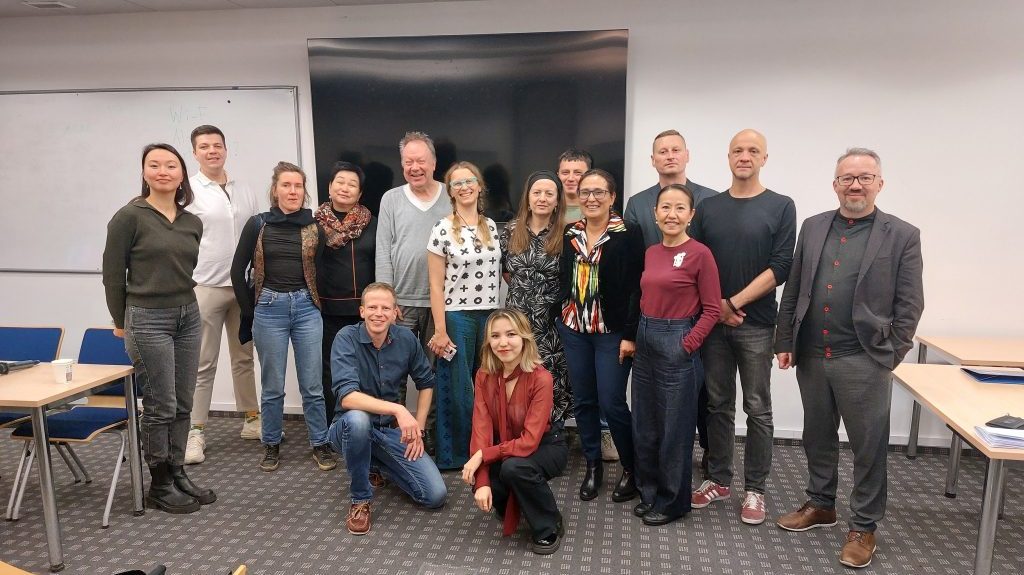
The head of Esimde, Elmira Abylbek (Nogoybaeva), spoke at the conference “Reforming Dependencies and Sovereignties: Decoloniality in Central Asia and Beyond,” organized by the “Artes Liberales” faculty at Warsaw University.
In her presentation, “Esimde (I Remember): Will the Mankurt Awaken?” Elmira Abylbek addressed critical issues of postcolonial legacy in Central Asia, as well as the paths to liberation from mental and cultural dependencies that have shaped the identities of the region’s peoples for decades.
Strasbourg
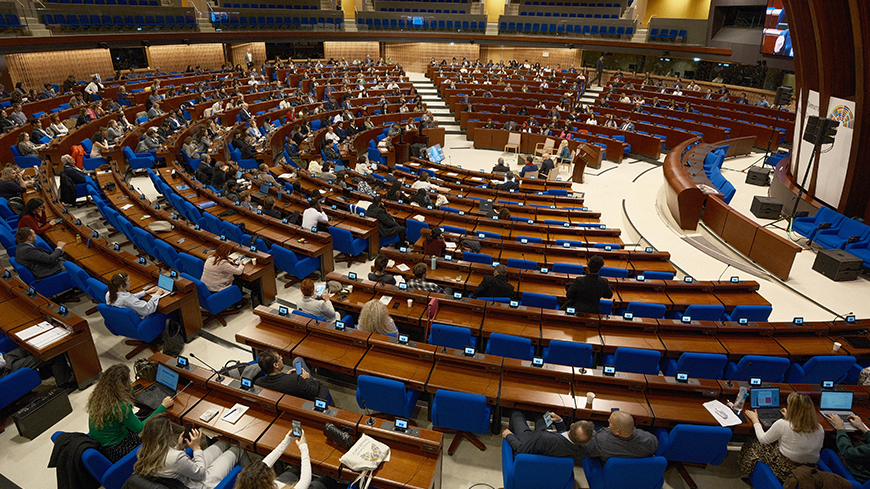
Additionally, Elmira Abylbek spoke at the World Forum for Democracy, held from November 6 to 8 in Strasbourg, France.
In her presentation, she emphasized the importance of restoring and preserving historical truth, particularly regarding periods of mass repressions. Elmira Abylbek shared the role of Esimde in awakening interest in history, which helps lay the foundation for future initiatives aimed at shaping objective perspectives on the past, present, and future of an independent Kyrgyz society.
Berlin
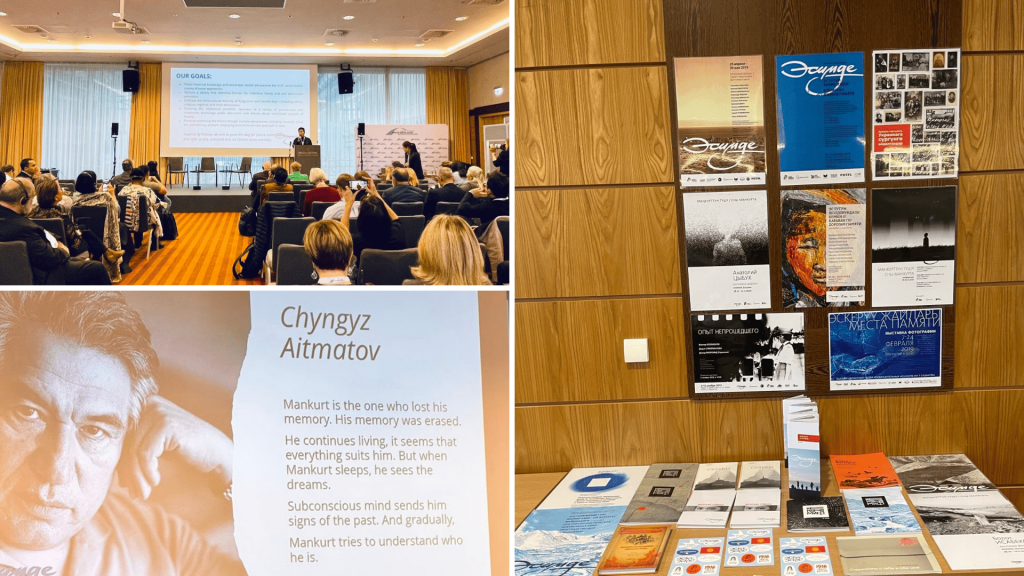
Also, at the end of November, the head of the platform participated in the Germany–Central Asia Partnership Forum, which took place in Berlin from November 25 to 27.
In her speech, she presented the activities of Esimde, and at the forum’s booth, publications, magazines, books, research, and posters from exhibitions organized by the platform were showcased.
Astana
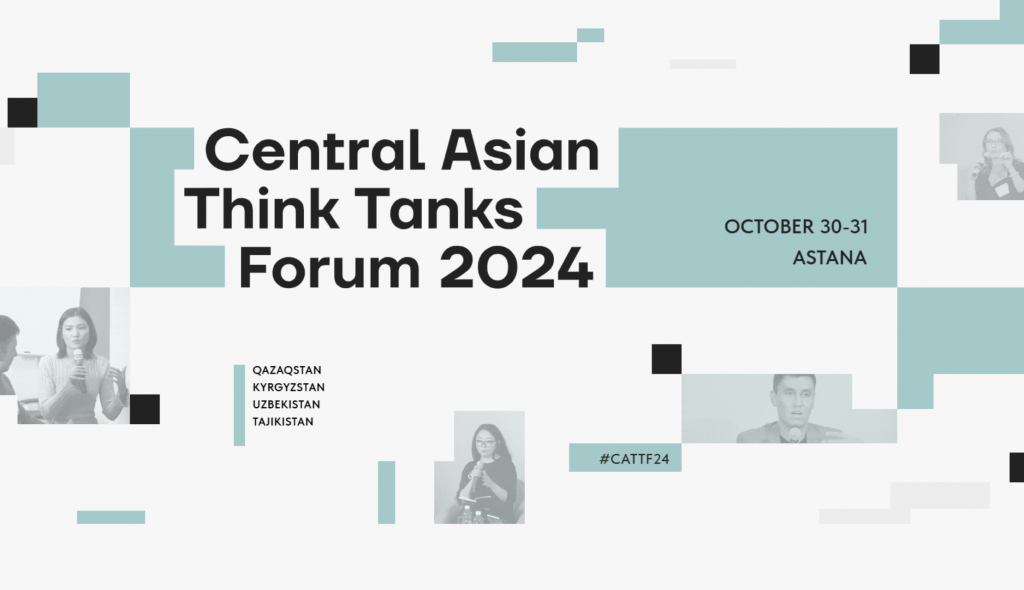
Esimde participated in the “Central Asian Think Tanks Forum,” which took place from October 30 to 31 in the city of Astana.
The Central Asian Think Tanks Forum is a dialogue platform aimed at strengthening partnerships and developing the potential of research and analytical organizations in Central Asia. The main goal of the forum is to establish a long-term partnership network among non-commercial think tanks united by the idea of promoting democratic values in the region.
The main theme of this year’s forum was “The Role of Think Tanks in Promoting Human Rights in Central Asia.” From the Esimde, the Academy of Civil Education, and the Center Polis Asia, Aidai Algozhoeva participated in the forum.
Issyk-Kul



Esimde researcher Avtandil Eshmambet participated in the Second National Museum Festival on behalf of the Esimde and delivered a presentation. In his speech, he discussed the platform’s activities as a whole, the “12” project, and presented the book “Women’s Fates.”
The festival is a unique platform for exchanging experiences, ideas, and information between museums.
While the first museum festival, held in partnership with the Sulaiman-Too Museum Complex, focused on “Decolonial Narratives in Museum Spaces,” the second festival, held in collaboration with the Kurmanjan Datka Center for Nomadic Civilizations, was dedicated to the topic “Representation of Women and Women’s Stories in Museum Spaces.”
Esimde. Media
The Esimde is currently active on social media platforms such as Instagram, Facebook, Threads, and Twitter, as well as on video hosting services like YouTube and TikTok. These platforms are used daily to share updates on the platform’s activities, publish media products from Esimde, and feature interesting archival photo and video materials.
The “Esimde. Media” team not only covers the main activities of the platform but also continues to implement its own projects: “Esimde. Podcast,” “Esimde. Music,” and “Esimde. Insan.”

Followers:
- Esimde Instagram — 16.7K
- Esimde Facebook — 12.2K
- Esimde TikTok — 3.8K
- Esimde YouTube — 3.34K
- Esimde Threads — 2.9K
- Esimde Twitter — 238
Esimde TV
The 5th season of the Esimde TV program continues on the “NTS” channel.
The 5th season of the show began in November 2023, with 9 episodes already released. The host, Mirjan Balabaev, invites guests from various fields, including historians, anthropologists, researchers, activists, and other experts. They discuss current topics and share their perspectives on important social issues.
For example, the authors of the Esimde research “On the Issues and Opportunities of the Kyrgyz Language Ecosystem in the Media” — Mukaram Toktogulova and Gulzada Stanalieva — shared the results of their research on the program. Meanwhile, guests Suyun Kurmanova, Bakyt Orunbek, and Asker Sakybaev discussed the development and role of the “Asaba” newspaper as one of the leading publications of free media in Kyrgyzstan.
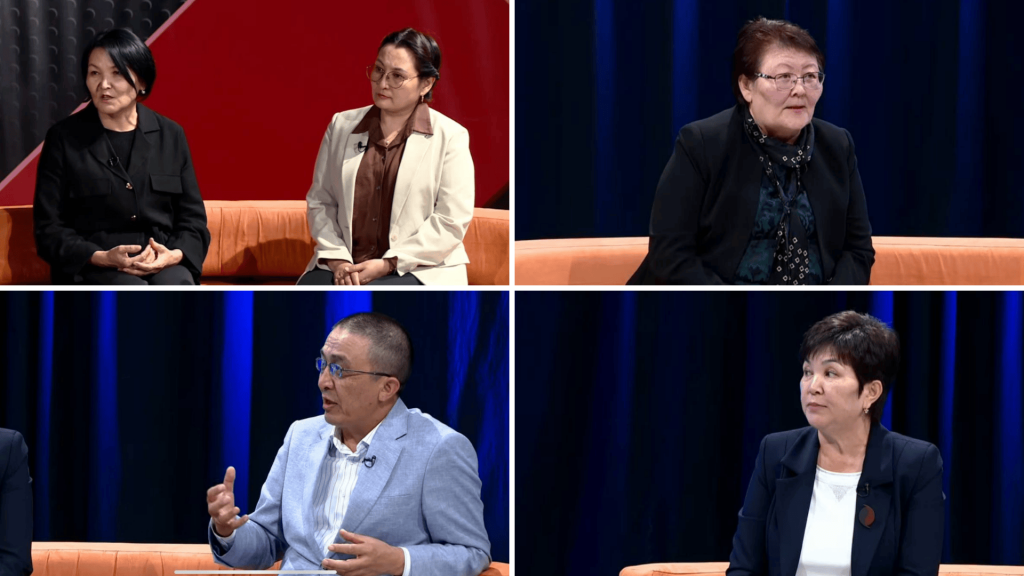
Esimde. Podcast
We continue the series of audio podcasts “Women’s Fates”!
In collaboration with Sabyr Abdumomunov, two more episodes of the audio podcast “Women’s Fates” have been released. They are dedicated to the manaschi Zuurakan Sydykova and the renowned director Dinara Asanova. The stories featured in these podcasts are part of the “Women’s Fates” collection and the “12” project of the “Esimde” platform.
The heroines of our podcasts, often overlooked in chronicles and modern accounts, have made significant contributions to our personal, family, and social lives. The podcast aims to restore their names, memory, and recognition.
We have launched a series of video podcasts “Space for Reflection”!
As part of its IV International Conference “Post-Communist Central Asia: A Space for Reflection,” Esimde has recorded a series of podcasts featuring researchers, museum workers, activists, and other experts from various countries. These podcasts have already started to be published on YouTube, «Spotify» and «Apple Podcasts»!
Watch or listen to the episode with Professor Madeleine Reeves from the University of Oxford, a social anthropologist, and Associate Professor Ruslan Rakhimov from the Faculty of Anthropology and International Development at the American University of Central Asia.
We have updated the intro video of our podcasts!
As you may have noticed, we’ve updated the intro video of our podcasts. The main heroine is a strong and free young woman, looking back at her past while riding toward a bright future.
Media Collaborations
“Erkin Kyz Koomu” is an educational platform for girls, founded five years ago on a volunteer basis. The platform promotes the rights of girls and expands their opportunities in science and education.
“Esimde. Media” and “Erkin Kyz Koomu” collaborated on two joint posts on the following topics: “Janyl Myrza: The Role of Women in the Poem and Modern Society” and “The Feminist Strain of Decolonial Thought.”
“Üydo” is a media platform about people and life in Kyrgyzstan. “Üydo” created a reel about women-manashchi based on the video art by Zhazgul Ibraimova, which was presented at the exhibition and in the “12” project.
For the Day of Remembrance in Kyrgyzstan, the Memorial Society, together with Esimde, created cards that explain how repression in the Soviet Union is remembered in modern Kyrgyzstan, how terror affected Kyrgyzstan and the Kyrgyz people, which memorials in the country remind us of past state crimes, and what memory actions are currently being held.
Some Informative Posts
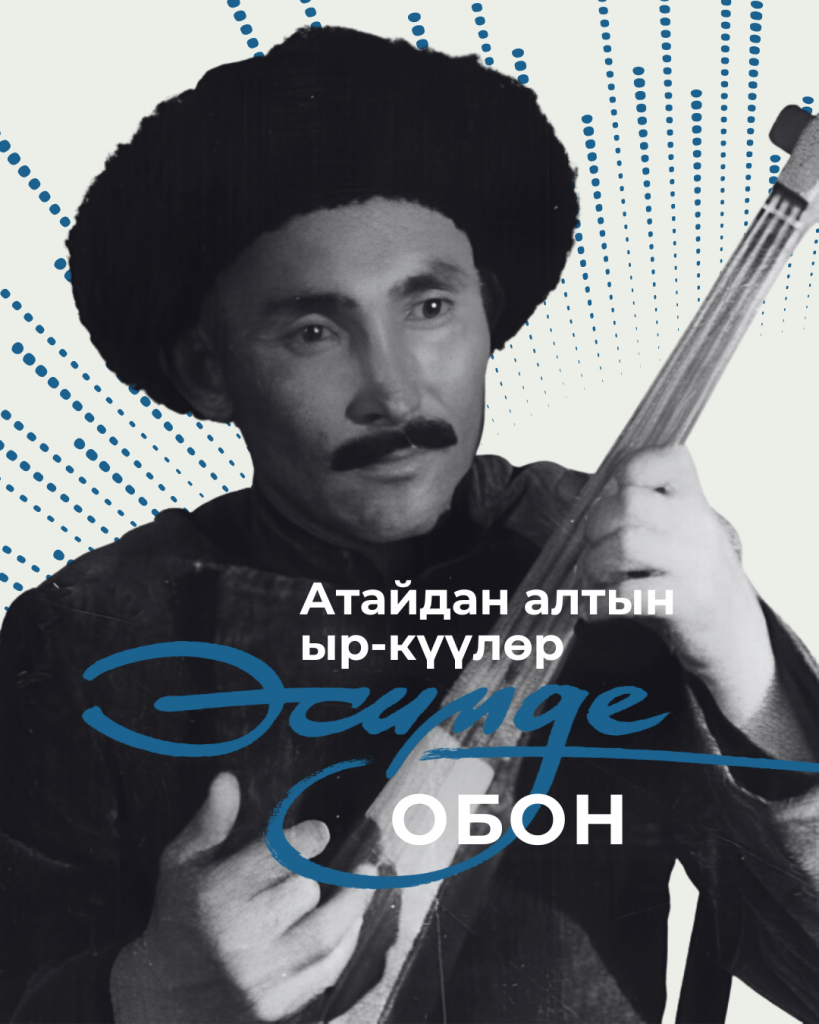
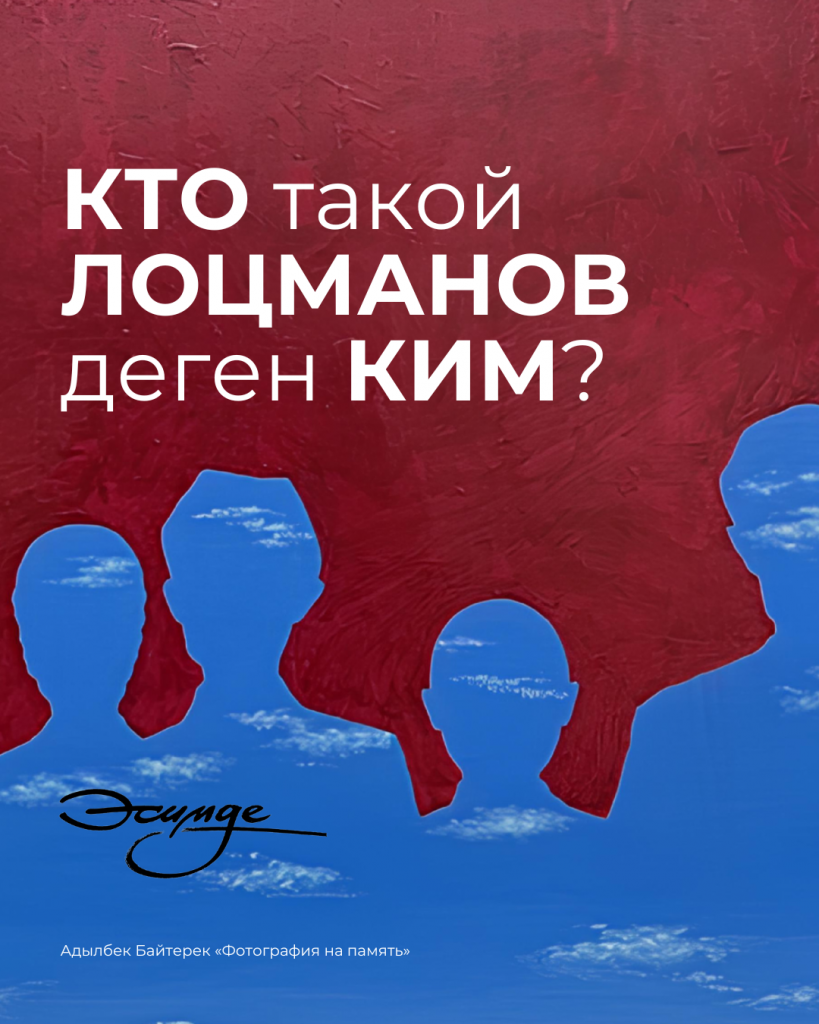
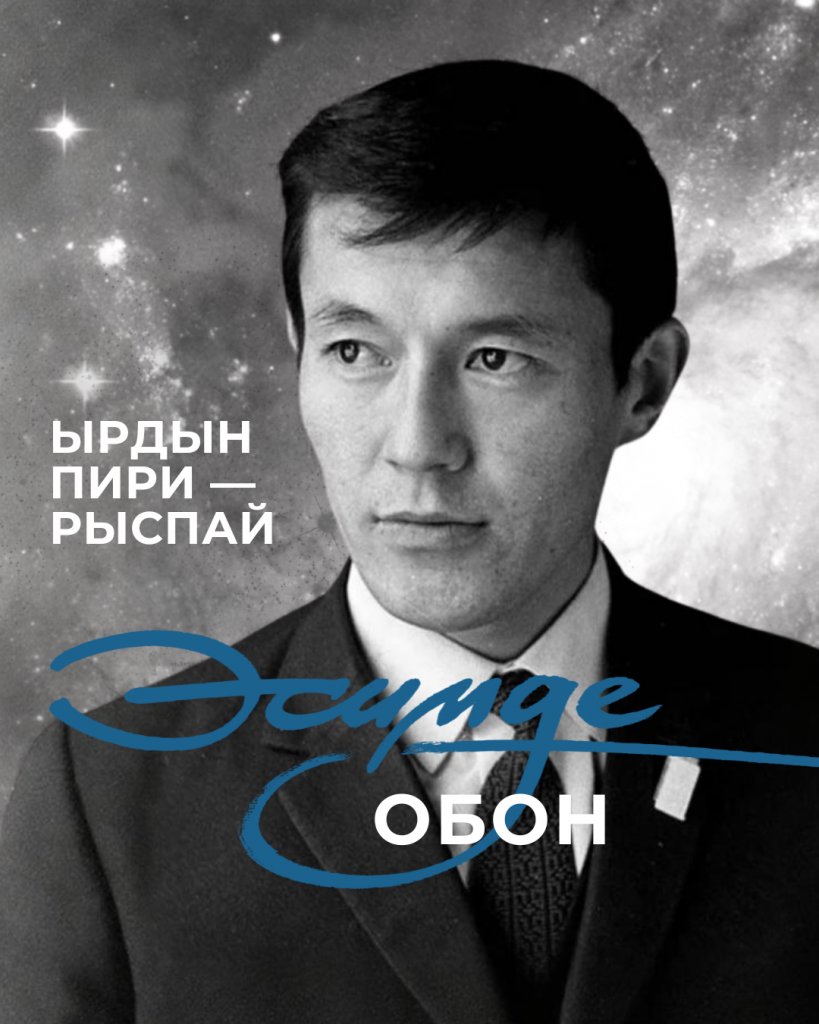
Some Video Captions
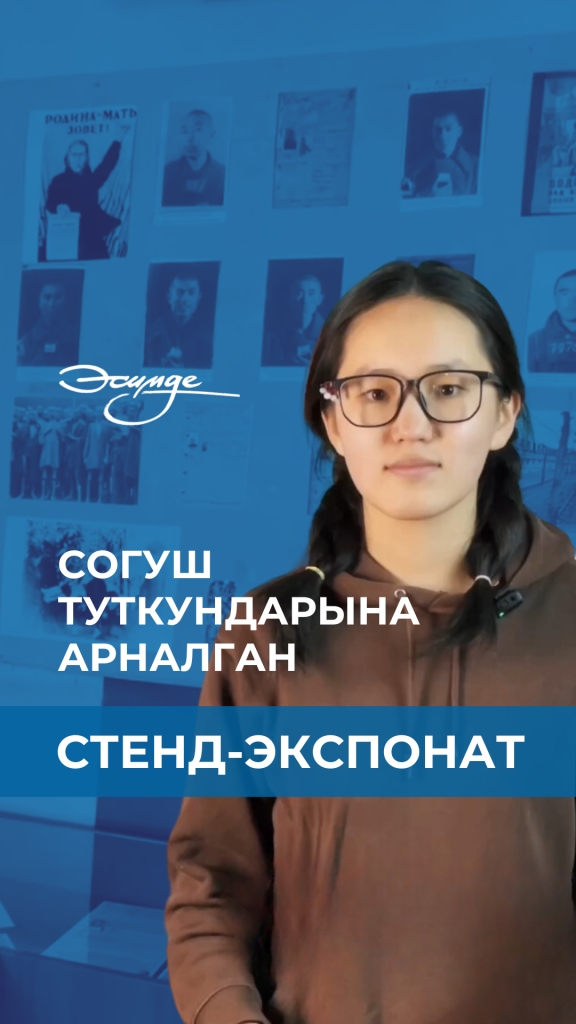
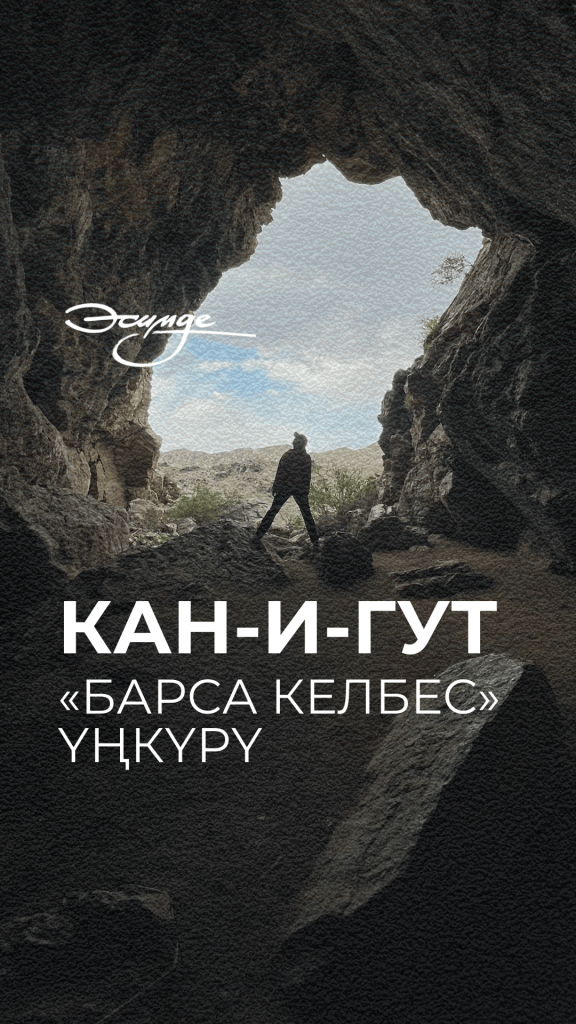
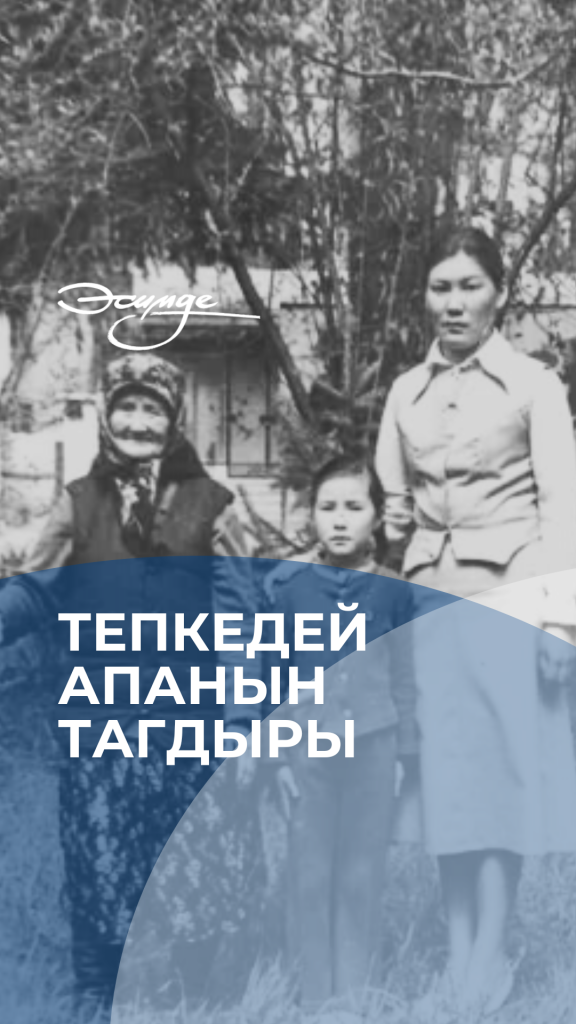
Research on Democratic Movements in Kyrgyzstan from 1985 to 1991
“Esimde. Media” continues to share the most significant moments from interviews with 100 individuals as part of the research on democratic movements in Kyrgyzstan from 1985 to 1991.
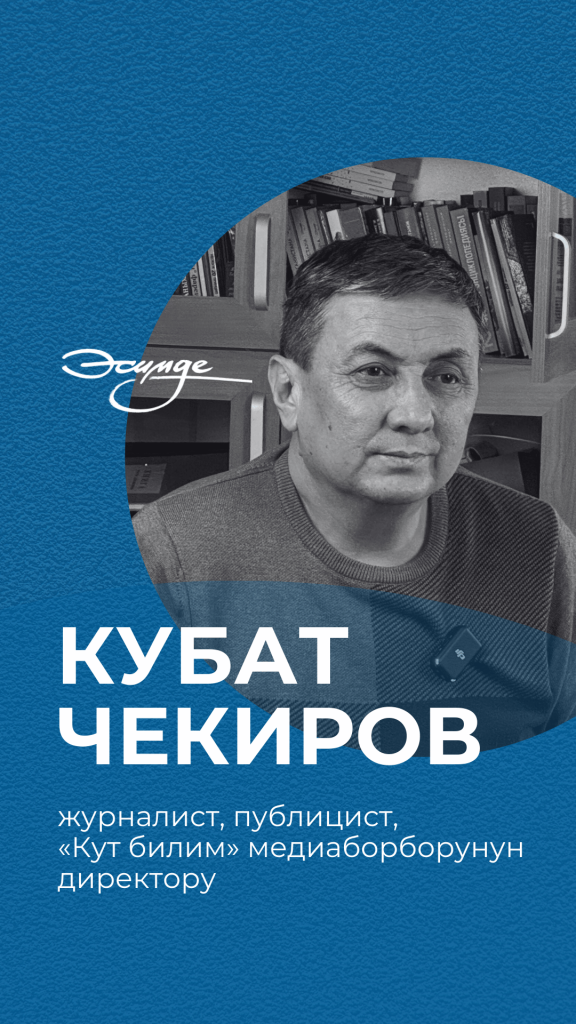
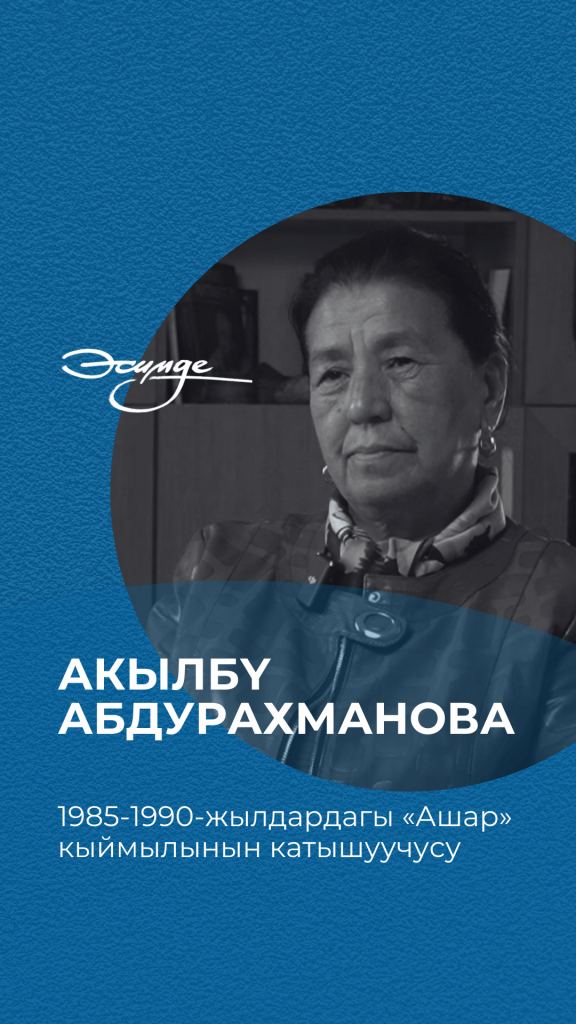
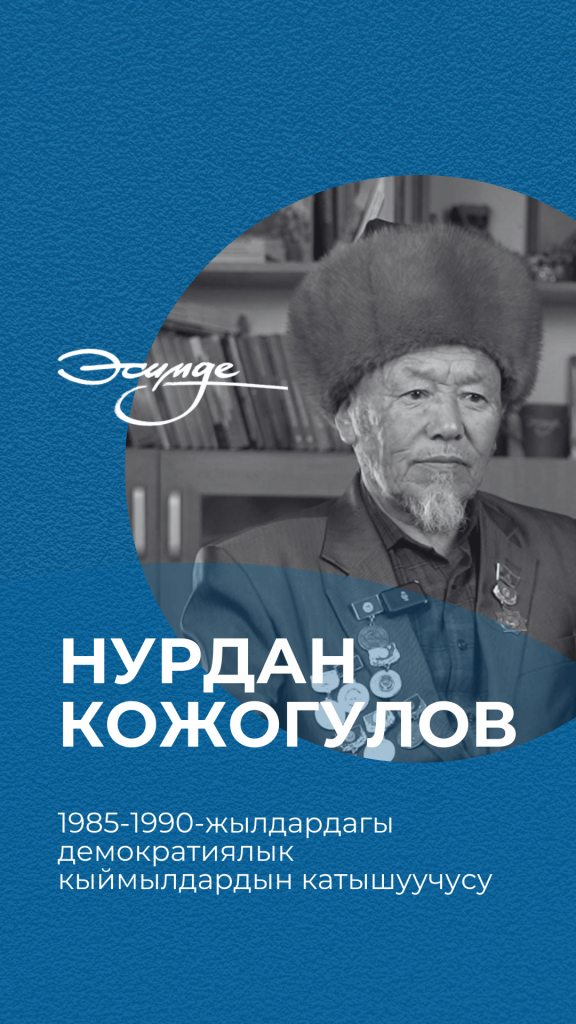
Salam, Esimdechi! Salam, 2025!
The year 2025 has arrived. Well, it’s not just arrived — we’ve already lived through 16 days of it. This year promises to be one of the brightest and most productive, and we are full of hope and inspiration.
We are already 8 years old, and over these years, we’ve met so many amazing Esimdechi that our hearts are filled with gratitude. We want to say to each and every one of you: “Rakhmat!” Until we meet again, we remember you, Esimde!








